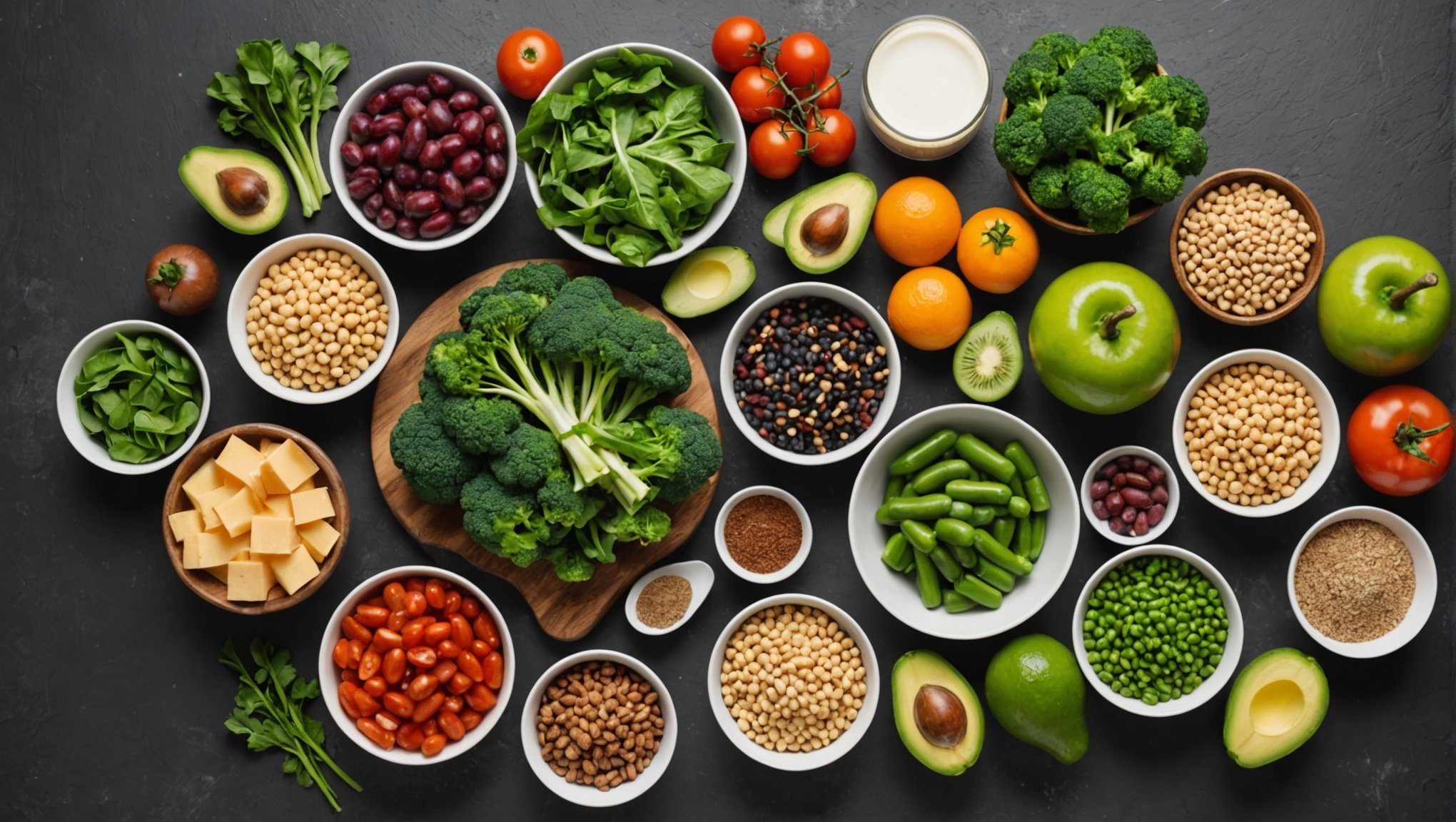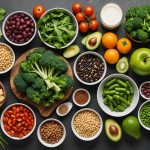You’ve made the decision to be plant-based, but you’re also serious about your performance in the gym. The question that you’re probably asking yourself is: “how can I get enough protein from a vegetarian diet to fuel my workouts and build muscle?” The good news is that it’s completely possible. Vegetarian diets can certainly meet your protein needs, even if you’re pushing your body to the limits with strength training. In this article, we will explore some of the high-protein foods that can help you meet your protein intake.
The Role of Protein in Muscle Building
Before we delve into the best vegetarian sources of protein, it’s crucial to understand why proteins are so vital for muscle building.
This might interest you : How can advanced heart rate monitoring techniques guide strength training sessions?
Proteins are chains of amino acids that are crucial for various bodily functions. They act as the building blocks of body tissue and also serve as a fuel source. As part of a balanced diet, protein can help repair tissues damaged during strength training, leading to muscle growth.
For those engaged in strength training, your body’s protein needs can be significantly higher than those of non-athletes. It’s generally recommended that people engaging in strength training should aim for about 1.2 to 2.0 grams of protein per kilogram of body weight each day. Meeting this target can be more challenging for vegetarians, who may find it harder to get enough protein without consuming animal-based products.
Also read : How do various breathing techniques affect diaphragm strength in powerlifters?
High-Protein Vegetarian Foods
Let’s talk about specific foods. There are plenty of plant-based foods that are high in protein, and incorporating these into your diet can help you reach your protein goals.
Firstly, quinoa is a grain that’s packed with protein, around 8 grams per cup, and it’s also one of the few plant foods that contain all nine essential amino acids.
Lentils are another excellent source of protein, with around 18 grams of protein per cooked cup. They’re also high in fiber, which aids in digestion and keeps you feeling full, helping to manage body fat levels.
Tofu, tempeh, and edamame all come from soybeans, which are a complete protein, similar to quinoa. Tofu has about 10 grams of protein per half-cup, tempeh comes in at about 15 grams per half-cup, and edamame boasts a whopping 17 grams per cup.
Other great high-protein vegetarian foods include chickpeas, black beans, green peas, and seitan, a gluten-based protein source.
Incorporating Protein into Your Diet
Having identified some high-protein vegetarian foods, the next step is incorporating them into your daily diet. This is where careful meal planning comes into play.
To get the most out of your protein intake, it’s also important to spread your protein consumption evenly throughout your meals during the day. Research has shown that eating protein in balanced amounts at each meal may promote greater muscle strength than skewing protein intake toward dinner.
For breakfast, consider a quinoa porridge topped with nuts and seeds, or a tofu scramble. For lunch and dinner, options could include a lentil salad, a chickpea curry, or a bowl of black bean soup. Snacks can also be protein-packed, with options like roasted edamame, yogurt, or a pea protein shake.
Balancing Protein with Other Nutrients
While it is important to obtain enough protein, it’s also crucial not to neglect other important nutrients. Remember, a well-rounded diet is key to overall health and optimal athletic performance.
For instance, carbohydrates provide the energy needed for your training, while healthy fats are essential for joint health and hormone production. Iron, a nutrient that vegetarians sometimes lack, is crucial for the transport of oxygen in your blood, which affects your athletic performance.
By consuming a varied diet that includes a range of high-protein plant-based foods, you can not only meet your protein needs but also ensure a good balance of other essential nutrients.
In short, while it might need a bit more planning, a vegetarian diet can certainly provide all the protein required for strength training. So, fear not! Adopting a plant-based lifestyle doesn’t mean sacrificing your fitness goals.
Understanding the Power of Plant-Based Protein
Delving further into the science of proteins, let’s explore why plant-based proteins are potent allies for strength training.
Plant-based proteins are derived from various food sources like legumes, grains, and nuts. They contain essential amino acids, though not always in the same quantity as animal-based proteins. However, by consuming a variety of plant-based protein sources, you can ensure a well-rounded amino acid profile to fully support your muscle protein synthesis. Moreover, plant-based diets have the added benefits of being rich in fiber, antioxidants, and other phytonutrients that support overall health and recovery from workouts.
While strength trainers have traditionally leaned towards animal proteins to meet their protein needs, numerous studies have shown that plant proteins can be just as effective for muscle growth and recovery. For example, a study published on Google Scholar showed that pea protein promoted muscle thickness gains equally well as whey protein, a popular dairy-based protein supplement.
When it comes to your daily protein needs, don’t be misguided by the myth that plant-based proteins are inferior. With the right variety and quantity, you can meet and even exceed your protein requirements. Vegetarian sources of protein not only help you to meet your body’s needs but also offer a plethora of other health benefits not found in animal-based protein.
Conclusion: Harnessing the Benefits of Vegetarian Protein Sources
Strength training is demanding, and ensuring adequate protein intake is crucial for muscle repair and growth. But this certainly doesn’t exclude those who follow a vegetarian diet or those considering making the switch.
As we’ve explored, there are ample high-protein vegetarian foods that can support your strength training goals. Quinoa, lentils, and various soy products are just a few examples of foods that are high in protein and rich in other essential nutrients. Plan your meals thoughtfully to include a variety of these foods, and you’ll be well on your way to meeting your protein targets.
Remember, it’s not just about protein. A balanced, well-rounded diet that also includes carbohydrates, healthy fats, and a range of vitamins and minerals is crucial for overall health and athletic performance.
While it may take a bit more planning, the benefits of a vegetarian diet extend beyond just meeting your protein needs. From boosting your intake of fiber and antioxidants to potentially reducing your risk of chronic diseases, adopting a plant-based diet could have far-reaching benefits.
In conclusion, being a vegetarian engaged in strength training is not only possible but also beneficial. So go ahead and embrace the power of plant-based protein – your muscles and your overall health will thank you for it.






